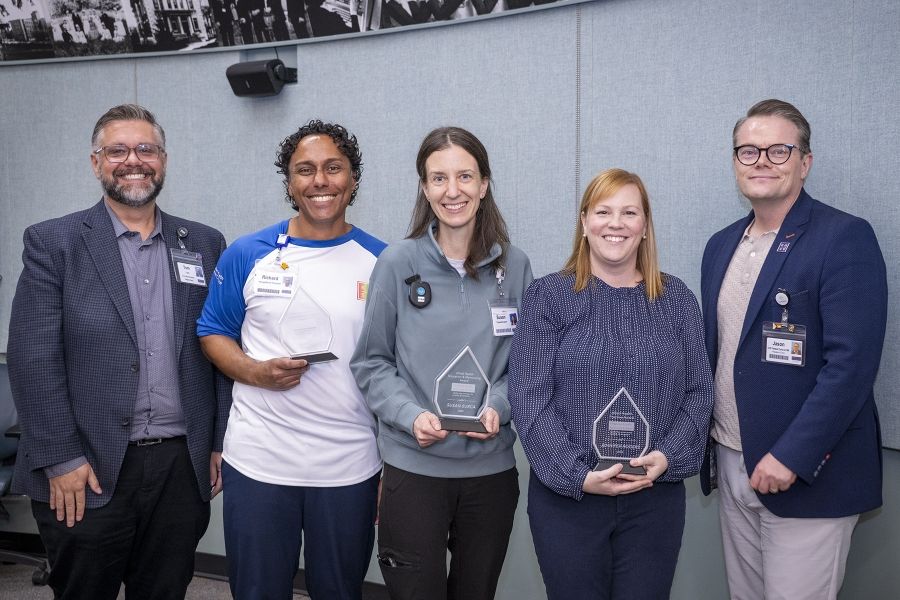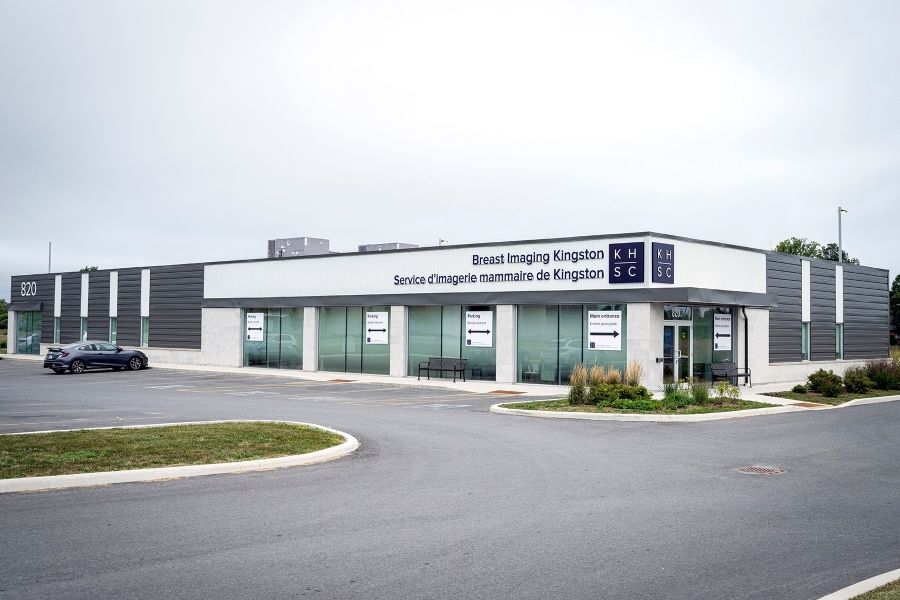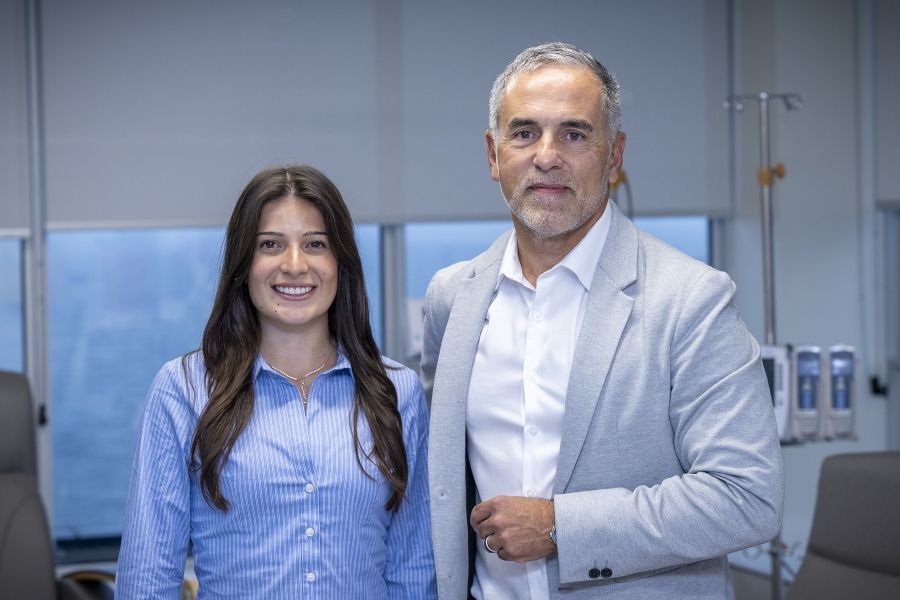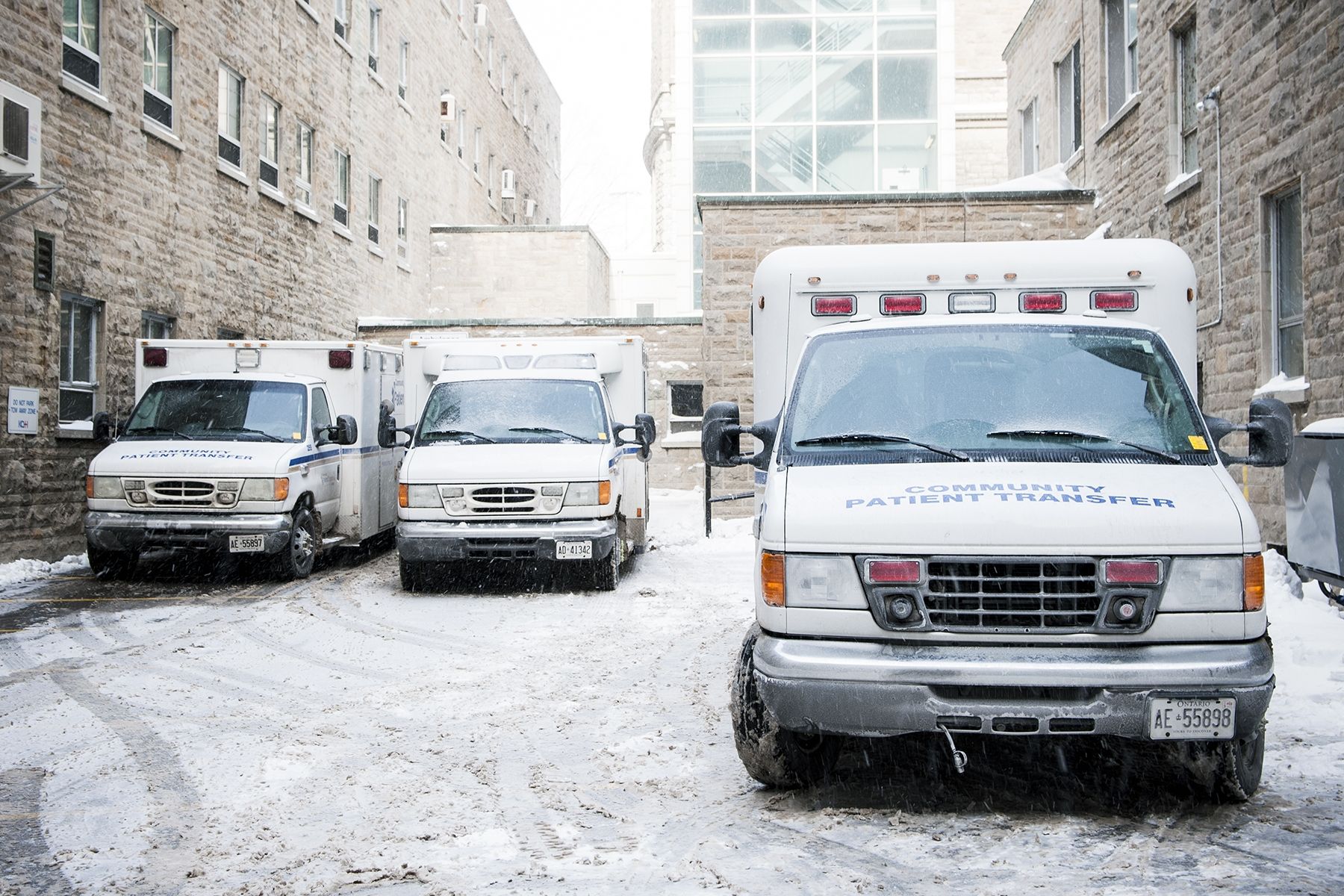
Thousands of patients arrive and leave Kingston General Hospital each year with the help of a non-urgent patient transfer service (NUPT) and a new system has been put in place to handle these transfers across the Southeast region. It is the first of its kind in Ontario.
In partnership with the South East Local Health Integration Network (LHIN), hospitals across the region have awarded a contract to a company named Community Patient Transfer Group (CPTG). The agreement, which came into place on February 3 means that KGH, along with every other hospital in our region, has access to non-urgent transfer services 24 hours a day, seven days a week, including holidays.
"Prior to this, area hospitals had separate agreements with three different companies, each with different service level standards and abilities,"says Ken Beckett, Decision Support Consultant at KGH. "Now, as a group of hospitals, we can deliver service as a region. All patients get the same access to service no matter where they live."
A non-urgent patient transfer service is used when a stable patient is moving between hospitals or facilities. Patients who require acute care during transport will still be moved by an ambulance.
The biggest benefit of this new region-wide system is how it will positively impact patient flow between hospitals, long-term care homes and other facilities and help prevent gridlock at KGH. Since the company will act as a central call centre for all non-urgent transfers in our region, patients will move between hospitals more efficiently. Dispatchers will know when and where patients are coming and going at all times. Transfers can be timed so that fewer vehicles are making trips without patients.
"We expect that this will mean patients won't have to wait as long to be transferred and beds may potentially be freed up more quickly," says Julie Caffin Program Operational Director for Cardiac and Emergency. "Another benefit for our staff at KGH is that transfers will be happening earlier in the day. Previously, transfers took place in the afternoon and into the evening, when fewer staff were available to send and receive patients."
Here at KGH, the system should also be easier for staff who are booking the transfers. The bookings can be done online and can be booked in advance so that a transfer crew can arrive onsite to meet a patient at the time they are ready to be transferred.
KGH along with the other hospitals in our area are leading the way with this regional approach to non-urgent patient transfer services and will already be ahead of the curve when the government begins to introduce provincial standards and regulations next year.
Gallery
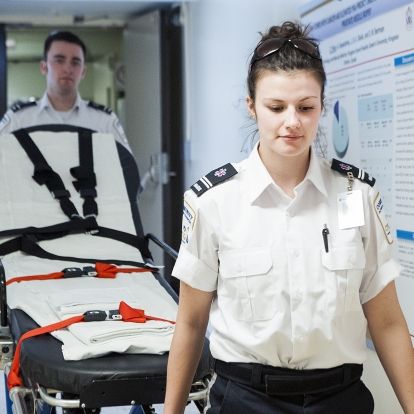
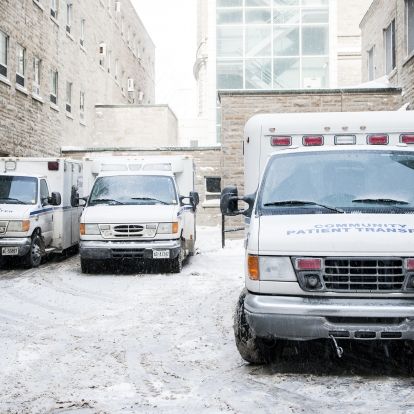

Community Patient Transfer Group Attendants Tyler Savage and Lindsay Raison prepare to pick up a patient in need of a non-urgent transfer from KGH.
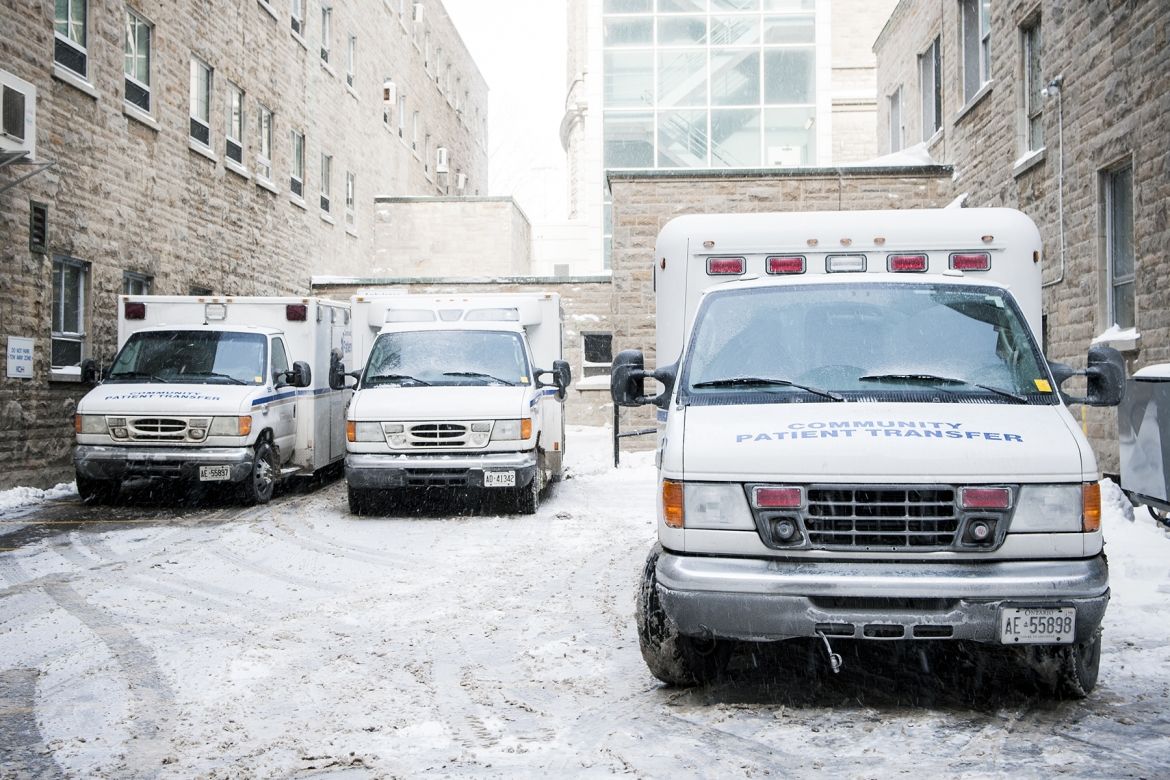
A few vehicles from the Community Patient Transfer Group parked at KGH to facilitate non-urgent patient transfers.

